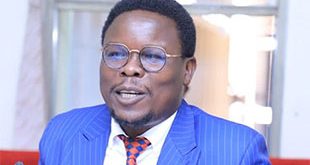
Kampala, Uganda | THE INDEPENDENT | Uganda Development Bank -UDB will be placed under the watch of Bank of Uganda with the aim of strengthening it. UDB is 100 percent owned by the government and has been self-regulating, audited by the Auditor General and reporting to parliament to answer queries arising.
The suggestion is one of the promises that the Ugandan government has put forward to lenders, including the International Monetary Fund and World Bank indicating UDB will be used as a vehicle to finance local companies as they recover from the coronavirus crisis.
The bank is expected to play a critical role in the post-COVID-19 recovery process. In its financial results for 2019, UDB indicates that the government has injected less than 200 billion Shillings as a capital contribution to the bank since 2015. This is despite the fact that leaders – including President Yoweri Museveni – have been lyrical about the need to give the bank more money to lend to Ugandan entrepreneurs at below-market rates.
In 2015, the the government promised to give the bank 500 billion Shillings in capital. But by the end of 2019, only 197 billion Shillings had been injected in the bank since 2015. The bank is supposed to lend long term to businesses at a cheaper rate compared to what commercial banks would charge. In 2019, its loans to businesses reached 334 billion up from 276 billion in 2018.
However, according to its audited results, the institution holds a lot of money – up to 81 billion Shillings from 13 billion in 2018 – in deposits in other banks. One can conclude that almost all the capital it got from the government that year was not lent out. This is an indicator UDB is struggling to get who to lend the money to or is risk-averse and limiting on the amount it gives out to businesses.
But the government says in the document sent to the International Monetary Fund that “to further strengthen UDB, we shall amend the necessary legislation to place it under the regulation and supervision of Bank of Uganda.” The government is promising to make available investment finance through an additional liquidity injection into UDB.
Being placed under BoU watch could mean it will be forced to develop more capacity, reach and do more due diligence to be able to lend more, a move which has been welcomed by financial analysts and economists as one way of giving confidence to the financiers to give UDB money and enable it to reach more businesses that need its help.
Prof Samuel Sejjaaka, the UDB former board chairperson said the “move is welcome. UDB needs to provide assurance to its financiers that it is well run and supervised.” He added that “We requested for supervisory oversight more than two years ago. It is great that gov’t is responding to the request of UDB”.
Paul Lakuma, a research fellow at Economic Policy Research Centre (EPRC), said UDB has been weak and had low status. He said that under the supervision of the Central Bank, UDB will enhance its status and stature in the eyes of the public. “It was not that respected. Banking is about confidence too,” he said.
******
URN
 The Independent Uganda: You get the Truth we Pay the Price
The Independent Uganda: You get the Truth we Pay the Price



